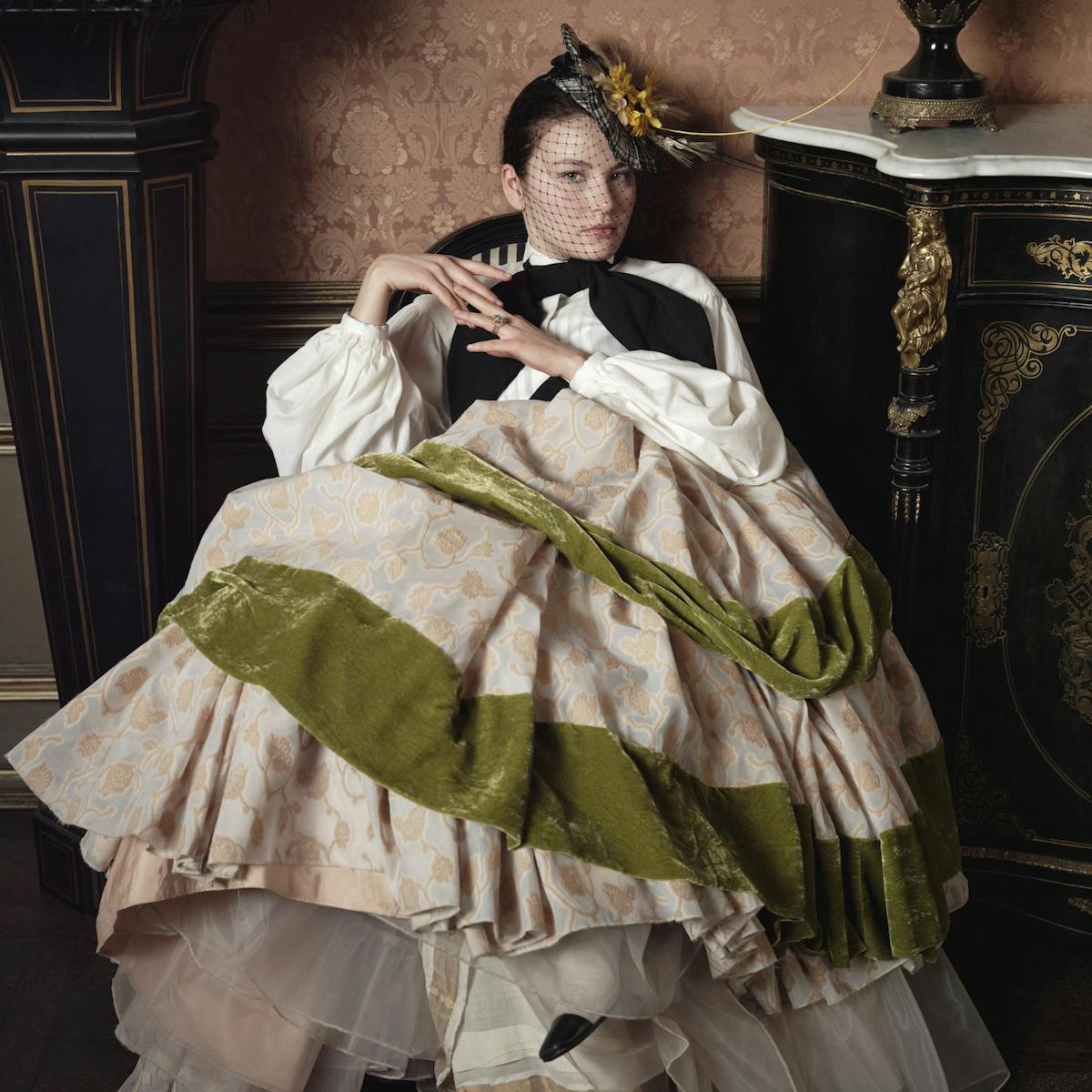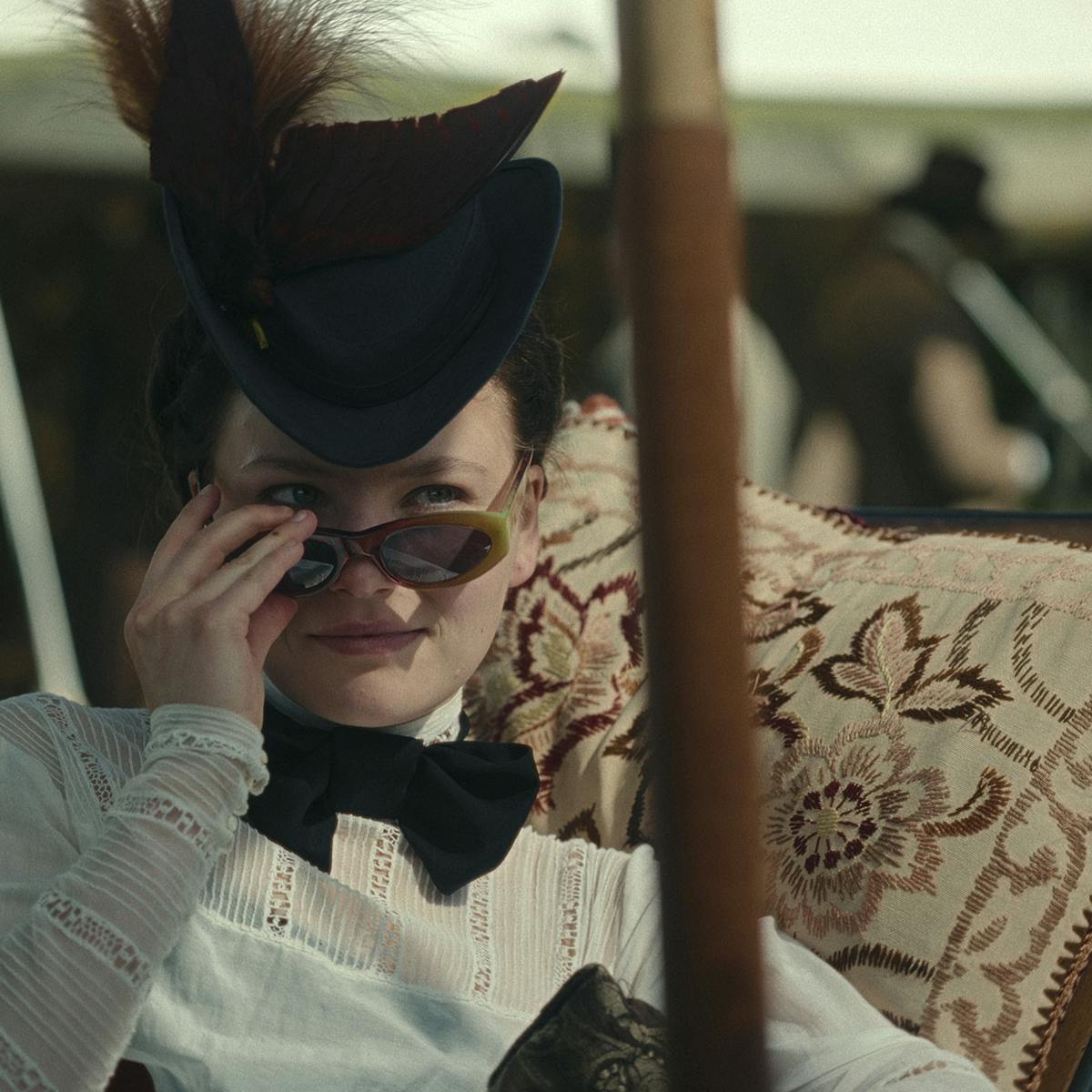The International Emmy-winning series from Germany returns to the palace with a second season.
In the middle of autumn, it is surprisingly hot at the Austrian royal court. Even in a T-shirt and jeans one would sweat — let alone if wearing crinoline and a wig weighing five kilos. But none of this can dampen the mood on set: The cast and crew are thrilled to be back for Season 2 of The Empress.
“It was unimaginable for us to have such success,” says showrunner Katharina Eyssen. “It left me totally surprised and humbled.” Nevertheless, she wrote the first season, which chronicled the relationship between Empress Elisabeth “Sisi” and Emperor Franz Joseph of Austria, in such a way that it laid the foundations for a greater story.
Devrim Lingnau and Philip Froissant, who play Elisabeth and Franz, were also hoping for another season. “After the season finale and all the work we put into it, it was hard to think, That’s it,” says Lingnau cheerfully, despite the heavy wig that has been sitting on her head for hours. When the call came from Eyssen, it was “an incredibly beautiful feeling,” says Froissant. “Yes, totally. As was knowing that we’d be getting together again as an ensemble,” agrees Lingnau.
The cast is gathered to film not in Schönbrunn Palace in Austria, where the real imperial couple once resided, but in Weissenstein Castle in Germany, which is privately owned by the Count of Schönborn. “It’s not only a breathtaking, unique palace which matches our story perfectly, it’s also a practical choice for such a complex production,” explains Eyssen, because unlike museums, private castles don’t have to be closed to the public during filming.
Weissenstein is one of the best-preserved cultural monuments in Europe — from the stately baroque facade, colonnades, and statues that line its entrance to the impressive ceiling fresco in the staircase. Upon arrival, one is quickly transported back more than 160 years in time. It’s the perfect set to immerse oneself in the world of Empress Elisabeth.

Elisabeth (Devrim Lingnau) and Franz (Philip Froissant)
As with the first season, the second grants the audience insight into the complex inner lives of the characters of the royal court against the backdrop of historical events. The real-life Elisabeth was an icon in her day, but one who suffered enormously from a deep obsession with beauty. She struggled with severe eating disorders until her death: An autopsy of her body revealed she was so malnourished that she suffered from hunger edema. This series uncloaks Elisabeth’s darker side.
In the first season, she is seen rather like a free spirit, but it also becomes clear that the young woman sometimes finds herself on the brink of despair. “Being a wild spirit trapped in this strict system causes Elisabeth great suffering,” says Eyssen. “As the series progresses, her psychological struggles will become even more apparent as Elisabeth no longer only fights for her own independence, but for her children as well. The struggles become more existential.”
The empress’s relationships also take on a new dynamic in the second season. “I’m looking forward to showing the viewers how Elisabeth and Franz work together in their new roles as parents,” says Lingnau. The actor also relishes her scenes with Franz’s mother, Archduchess Sophie (Melika Foroutan). “The conflict between the two women escalates but is also shown in a more nuanced way.”
Foroutan, who has been working in the German entertainment industry for more than two decades, speaks about the extensive preparation for the second season. Anyone who thinks that acting becomes easier with experience is mistaken. “Quite the opposite — I really felt like I was overcoming a challenge,” says Foroutan.
Archduchess Sophie works as a foil to the young couple, and the actor says that Sophie’s coldness, which she often shows to her children, particularly affects her emotionally. “These are the moments that completely tear me apart inside,” says Foroutan. The actor cannot identify with the archduchess’s loyalty to the system, which drives her to put the well-being of the monarchy above that of her sons.

Elisabeth (Devrim Lingnau)
Sophie’s second son, Archduke Maximilian, is one of the characters filming today. In one scene, he returns to his brother’s court after a long absence. “Maxi” enters the castle, allowing his gaze to wander over the opulent ceiling fresco, and takes a deep breath. Take after take, his facial expression varies: Sometimes the archduke appears nervous, sometimes exasperated, sometimes resigned. Without words, actor Johannes Nussbaum makes it clear that there’s a great deal of tension in the palace surrounding the return of his character. In the first season, Maxi is one of his brother’s adversaries because he covets the throne.
“It’s always fun to play the villain because you can get a lot out of it,” says Nussbaum. “My job is to give this character a heart because he is a human being who I have to understand. Everyone needs people around them who love them and who they are allowed to love.” However, his character goes too far. Adds the actor, “He forgets his family because he is desperate to be visible and to make sure he gets what is his by right.”
The focus of The Empress is on the characters and their relationships, but the historical context remains relevant. The first season shows the emperor’s futile efforts to avoid war. In one scene, Franz sends his soldiers to the Russian border, risking thousands of lives. “The great challenge in terms of the writing is to link the moral insight from this political situation with the fates of the main characters and thereby, hopefully, with the viewers of today,” explains Eyssen.
The Empress’s connection with its audience extends far beyond the German-speaking region. Froissant says he even received mail from a distant relative of the Emperor. “He wrote to me and told me his whole family history and how descendants of Franz and Elisabeth came to Great Britain.” Eyssen also has received messages from all over the world: “We simply didn’t expect that,” she says.
Perhaps most touching were words from people who wrote to Eyssen and thanked her for creating such a powerful female fighter in the main character. The feedback proves her instincts were correct: “It’s a love story, but I do not think that’s the only reason the series is so popular. It’s because the series is about female leadership.”




